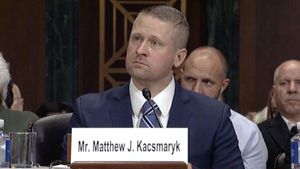Treatment GuideJust DiagnosedSex & DatingAfrican AmericanStigmaAsk the HIV DocPrEP En EspañolNewsVoicesPrint IssueVideoOut 100
CONTACTCAREER OPPORTUNITIESADVERTISE WITH USPRIVACY POLICYPRIVACY PREFERENCESTERMS OF USELEGAL NOTICE
© 2026 Pride Publishing Inc.
All Rights reserved
All Rights reserved
By continuing to use our site, you agree to our Privacy Policy and Terms of Use.
Carla Tocci added a new pill to her daily anti-HIV regimen in May. For most HIVers, a new pill would not be reason to cheer. But when that pink pill is a prenatal vitamin, everything changes as fast as a baby's heartbeat. One of the most significant advances in HIV care has been the ability to virtually eradicate HIV transmission from mother to child during pregnancy. Additionally, there is an array of techniques that HIVers can use to achieve a pregnancy with almost no risk of HIV transmission to an HIV-negative partner. As a result, for many HIVers, the question is not whether to have a baby'but when and how. 'There's been a revolution within perinatal HIV medicine,' says Deborah Cohan, medical director of the Bay Area Perinatal AIDS Center at San Francisco General Hospital. 'We can't ensure a woman won't pass HIV on to her baby, but [our chances of preventing it are] pretty close'almost 99%.' The transformation began in 1994 with a landmark AIDS Clinical Trials Group study that found that if a woman took AZT tablets while pregnant, received AZT intravenously during labor, and gave her newborn AZT syrup for the first six weeks after birth, the baby's risk of becoming HIV-positive was reduced from 25% to 8%. Since then, it's been shown that the risk is reduced even further for women who are taking newer antiretroviral drug combinations, which can decrease a patient's viral load to undetectable levels. Consequently, the number of HIV-positive babies born annually in the United States has dropped from a high of 2,000 in 1990 to 200 today. An Ounce of Prevention This has dramatically changed the nature of HIV care. HIV specialists now stress the need for physicians to offer preconception counseling to all HIV-positive women of childbearing age. And if the doctor doesn't raise the issue, patients should. 'Women should let their health care providers know they are thinking about becoming pregnant,' says Carolyn Burr, an HIV education specialist at the Fran'ois-Xavier Bagnoud Center at the University of Medicine and Dentistry of New Jersey, located in Newark. This will ensure that women get their viral loads down before becoming pregnant. They should be taken off any medications known to cause birth defects and should start taking prenatal vitamins. Once they become pregnant, they must be given medications appropriate to their needs. All too often, though, women don't learn they are HIV-positive until they are considering becoming pregnant'or already are. Monique [not her real name] learned she was seropositive in 2003 following a doctor's visit she scheduled when she and her husband decided they were ready to start a family. 'I was shocked,' she says, but before long she was ready to learn what the options were. At the Partnership Comprehensive Care Practice HIV Clinic at Drexel University in Philadelphia, she and her husband, who had tested negative, learned how to withdraw semen from his condom with a syringe and insert it into her vagina. It didn't sound romantic, but it was easy and safe. Three months later they were pregnant. If a woman is already taking anti-HIV medication and has an undetectable viral load, 'she needs to stay on the same regimen because it will protect her from getting sick and from transmitting HIV to her baby,' says Erika Aaron, a nurse practitioner specializing in women's HIV care at Drexel and a member of the Perinatal HIV Guidelines Working Group. In cases like Monique's, where a woman's viral load is undetectable, 'the recommendation is that a woman start taking medication to reduce transmission to her child after her first trimester,' Aaron says. 'We only start a woman on medication right away if she has a viral load over 1,000.' Understandably, many women are concerned about being on any medication'including antiretrovirals'while pregnant. But, says Maurizio Macaluso, chief of the Women's Health and Fertility Branch at the Centers for Disease Control and Prevention, 'there is no indication that [combination therapy], as administered to pregnant women, is having any negative impact at all.' In fact, studies indicate that for an HIV-positive woman who is taking antiretrovirals, the risk of having a baby with a birth defect is the same as that of any other woman: less than 3%. Macaluso and others can say this with confidence because of the information gleaned from the International Antiretroviral Pregnancy Registry, which collects data on prenatal exposure to antiretroviral products. To date, the only antiretroviral that has been found to cause birth defects when used in the first trimester is Sustiva. For this reason, some doctors do not give Sustiva to any women of childbearing age when other alternatives are available. (Atripla, the new once-a-day tablet, contains Sustiva, which would make it off-limits to women contemplating pregnancy.) What About Dad? While medical advances have clearly helped HIV-positive women have children, HIV-positive men who desire to have a child with their HIV-negative partner still face barriers. Scientists believe that HIV lives in semen, not sperm. And sperm washing, a procedure that separates the sperm from the semen [see accompanying article 'Reducing the Risks'], can be used in conjunction with assisted reproduction technologies such as in vitro fertilization and intracytoplasmic sperm injection (in which a single sperm is injected into an egg) to virtually eliminate the risk of transmission to an HIV-negative partner and the baby. In Europe thousands of HIV-discordant couples have safely become pregnant with sperm-washing procedures. But the United States lags behind. Mark Sauer, an infertility specialist at Columbia University Medical Center in New York City, began working with HIV-discordant couples in 1998. He remains the leading provider of services in this country, having helped more than 120 HIV-positive men and their partners have HIV-negative babies. But doctors like Sauer who can and will work with discordant couples are hard to find. In a number of states, such as California and Illinois, it is a felony for a man who knows he is HIVpositive to donate sperm'even to his own wife. Another obstacle is the CDC, which currently advises against insemination with sperm from HIV-infected men, a recommendation published'but not updated'since 1991. Macaluso says the CDC intends to update its recommendations within the next nine months; Sauer says that's something he has heard before. And in vitro fertilization isn't cheap. Each pregnancy attempt can cost $10,000 or more. That's one reason why Ann Kiessling of Massachusetts's Bedford Research Foundation started a clinical trial four years ago to assess the effectiveness of a technique in which the washed sperm of an HIV-positive man is placed in a cup specifically designed to fit over a woman's cervix. Last year Sally and John [not their real names] decided that was the procedure they wanted to use. In September they flew to Boston from the West Coast and became pregnant on their first try. Their little boy was born in June. Chelsea Gulden learned she was HIV-positive and pregnant the summer before her senior year in college. At the time, both diagnoses were a shock. 'I knew HIV was out there, but I didn't know much else,' says 23-year-old Gulden, who today is an adolescent care coordinator at the Metrolina AIDS Project in Charlotte, N.C. Gulden was on antiretroviral medication while pregnant, and she gave her newborn son, Noah, AZT syrup every six hours the first six weeks of his life. 'All I could think about was my baby,' she says. 'I didn't have time to process my own diagnosis. I was just praying for him to be OK, and I was so happy when he tested negative.' So far, Tocci, who has been HIV-positive for 16 years and was on Crixivan and Combivir when she became pregnant, has had a great pregnancy. Like most first-time parents-to-be, the 37-year-old and her husband, Sidino, are 'overjoyed and petrified''not of HIV but of the responsibility that parenting entails. It's not that Tocci, like all of the other moms interviewed for this article, doesn't think about her serostatus or the fact that she might one day not be there for her child, but she has not let HIV be the deciding factor. After a wonderful pregnancy, Monique gave birth in 2004 to an HIV-negative little girl. And this fall'with a mixture of trepidation and hope'she and her husband plan to start trying for baby number 2.
From our Sponsors
Most Popular
“So much life to live”: Eric Nieves on thriving with HIV
September 03 2025 11:37 AM
The Talk: Beyond the exam room
August 13 2025 3:15 PM
Messenger RNA could be the key to an HIV vaccine — but government cuts pose a threat
August 20 2025 8:02 AM
Thanks to U=U, HIV-positive people can live long, happy, healthy lives
July 25 2025 2:37 PM
It’s National PrEP Day! Learn the latest about HIV prevention
October 10 2025 9:00 AM
Amazing People of 2025: Javier Muñoz
October 17 2025 7:35 PM
The Talk: Starting the conversation
July 25 2025 4:47 PM
The lab coat just got queer
August 21 2025 10:00 AM
The Talk: Owning your voice
August 25 2025 8:16 PM
“I am the steward of my ship”: John Gibson rewrites his HIV narrative
September 16 2025 2:56 PM
Plus: Featured Video
Latest Stories
HIV-positive men stage 'Kiss-In' protest at U.S.-Mexico border
December 01 2025 12:56 PM
What the AIDS crisis stole from Black gay men
December 01 2025 6:00 AM
The Talk: Navigating your treatment
August 01 2025 6:02 PM
How the Black AIDS Institute continues to fill in the gaps
July 25 2025 1:06 PM
“I felt like a butterfly”: Niko Flowers on reclaiming life with HIV
July 23 2025 12:22 PM
Dancer. Healer. Survivor. DéShaun Armbrister is all of the above
July 02 2025 8:23 PM
BREAKING: Supreme Court rules to save free access to preventive care, including PrEP
June 27 2025 10:32 AM
1985: the year the AIDS crisis finally broke through the silence
June 26 2025 11:24 AM
VIDEO: A man living with HIV discusses his journey to fatherhood
June 10 2025 4:58 PM
Trump admin guts $258 million in funding for HIV vaccine research
June 03 2025 3:47 PM
Grindr is reminding us why jockstraps are so sexy and iconic
May 02 2025 5:36 PM
HRC holds 'die-in' to protest Trump health care cuts
April 28 2025 2:11 PM
Two right-wing Supreme Court justices signal they may uphold access to PrEP and more
April 21 2025 4:10 PM
500,000 Children at Risk: PEPFAR Funding Crisis
April 08 2025 3:51 PM
Broadway's best raise over $1 million for LGBTQ+ and HIV causes
April 03 2025 7:15 PM
The Talk Season 5 premieres this spring with HIV guidance for the newly diagnosed
March 26 2025 1:00 PM








































































